Ghana
-
Ghana
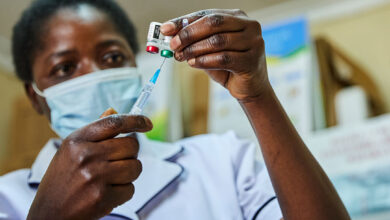
Ghana Becomes First Country To Approve Oxford University’s Malaria Vaccine
Ghana has become the first country to approve a new malaria vaccine developed by a team from the University of…
Read More » -
Ghana
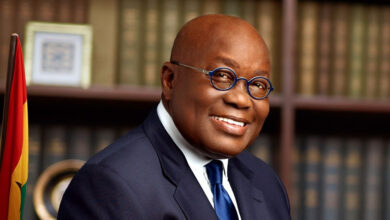
Ghanaian President Nana Akufo-Addo Says Ghana’s Anti-Gay Bill Has Been Modified
Ghanaian President Nana Akufo-Addo on Monday said the anti-gay bill, which is being debated in the country’s parliament, has been…
Read More » -
Ghana
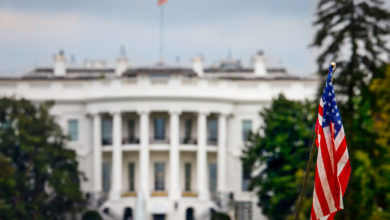
US Vice President Vows To Increase Investment In Africa To Spur Economic Growth
The United States (US) Vice President Kamala Harris on Sunday said Washington will increase investment in Africa and help spur…
Read More » -
Burkina Faso
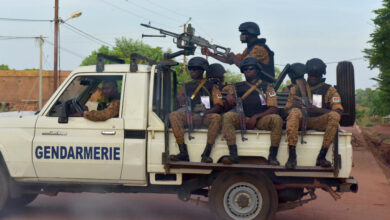
Ghana’s President Accuses Burkina Faso Of Inviting Mercenaries From Wagner Group
Ghana’s President Nana Akufo-Addo has accused Burkina Faso of inviting in mercenaries from Russian firm Wagner, reported The TRT World.…
Read More » -
Ghana
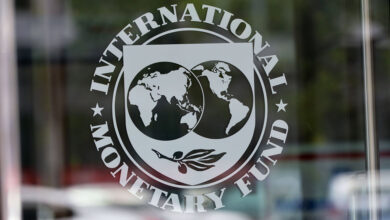
IMF Reaches Agreement With Ghana Government On A $3 billion Bailout Loan
The International Monetary Fund (IMF) on Tuesday announced it has reached an agreement on a $3 billion bailout loan with…
Read More » -
Ghana
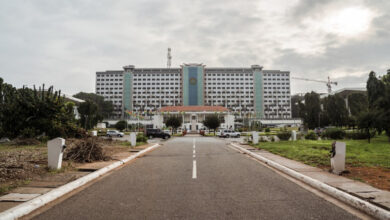
Ghana’s Vice President: Working On Plan To Buy Oil With Gold Instead Of U.S. Dollars
Ghana’s Vice President Mahamudu Bawumia on Thursday said the government is planning to undertake a new policy regime where it…
Read More » -
Ghana

Ghana’s President Warns Sahel Insurgency Could Spillover Entire West Africa
Ghana’s President Nana Akufo-Addo on Tuesday warned that a rampant rebellion in West Africa’s Sahel region is feared to spread…
Read More » -
Ghana
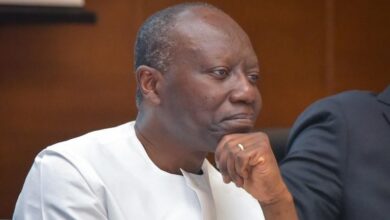
Ghana’s Finance Minister Ken Ofori-Atta Apologizes For Country’s Economic Hardship
Ghana’s Finance Minister Ken Ofori-Atta on Friday apologized for the country’s economic woes but defended himself against accusations that he…
Read More » -
Ghana

Ghanaian President Akufo-Addo Fires Junior Finance Minister Over Corruption Allegations
Ghanaian President Nana Akufo-Addo on Monday fired Charles Adu Boahen, the minister of state for finance, over corruption allegations, reported…
Read More » -
Ghana
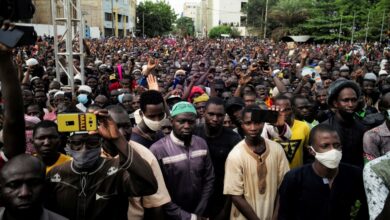
Ghanaian Protesters March Through Capital Demanding President’s Resignation
Hundreds of Ghanaian protesters marched through capital Accra on Saturday, demanding the resignation of President Nana Akufo-Addo over his government’s…
Read More » -
Ghana

Ghanaian President Akufo-Addo Says IMF Talks Will Not Lead To A Debt Haircut
Ghanaian President Nana Akufo-Addo on Sunday reassured the country that his government can manage an economic crisis as it is…
Read More » -
Ghana
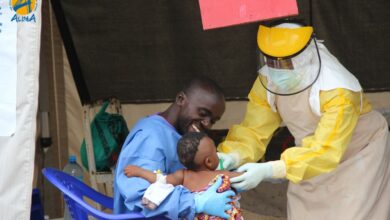
WHO Announces End Of Marburg Virus Disease Outbreak In Ghana After Two Months
The World Health Organization (WHO) on Friday announced an end of the Marburg virus disease outbreak in Ghana, two months…
Read More » -
Ghana

WHO Declares First Outbreak Of Ebola-like Marburg Virus Disease In Ghana
The World Health Organization (WHO) on Sunday declared Ghana’s first outbreak of the Marburg virus disease after medical labs confirmed…
Read More » -
Ghana
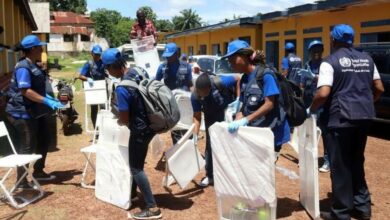
WHO Reports Two First-Ever Suspected Ebola-Like Marburg Virus Cases In Ghana
The World Health Organization (WHO) on Friday reported two potential cases of Marburg Virus Disease (MBV) in Ghana, reported The…
Read More » -
Ghana

Ghanaian President Says Country Will Commence COVID-19 Vaccine Production By 2024
Ghanaian President Nana Addo Dankwa Akufo-Addo on Wednesday announced the country will begin producing COVID-19 vaccines locally by January 2024,…
Read More » -
Ghana
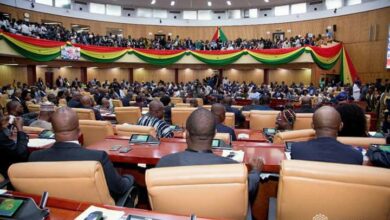
Ghanaian Parliament Approves New Electronic Transaction Tax Despite Opposition’s Protest
The Ghanaian parliament on Tuesday gave approval to a new electronic transaction tax after the opposition walked out in protest,…
Read More » -
Ghana
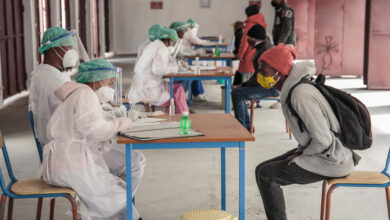
Ghana’s President Nana Akufo-Addo Announces Wearing of Face Masks No More Mandatory
Ghana’s President Nana Akufo-Addo on Sunday announced the government has removed the mandatory requirement for face masks to be worn…
Read More » -
Ghana
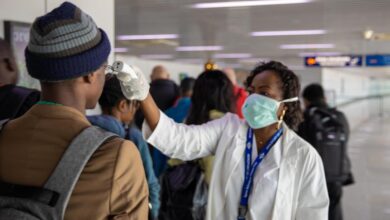
Ghana’s Health Ministry Confirms Country’s First Omicron Coronavirus Variant Cases
Ghana’s health ministry on Wednesday confirmed detection of the omicron coronavirus variant in passengers who arrived in the country in…
Read More » -
Ghana
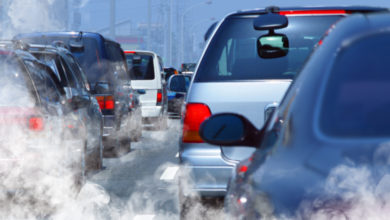
World Bank Vows To Support Ghana In Eliminating Deadly Air Pollution
The World Bank’s country director for Ghana, Pierre Laporte, on Friday said the bank will support Ghana in eliminating air…
Read More » -
Ghana
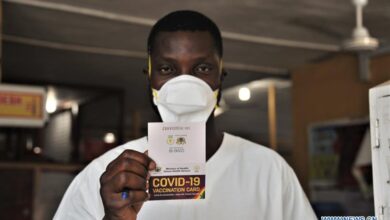
Ghana Health Service To Issue COVID-19 Vaccination Cards With Holograms
Ghana Health Service (GHS) on Tuesday said the government will issue enhanced COVID-19 vaccination cards to people who get their…
Read More » -
Ghana

Ghana: Supreme Court’s Order Retains President Nana Akufo-Addo’s Election Victory
Ghana’s Supreme Court on Thursday upheld President Nana Akufo-Addo’s election victory, rejecting a challenge by the opposition leader and runner-up…
Read More » -
Ghana
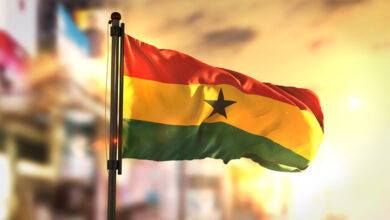
Ghana Signs Trade Agreement Worth $1.6 Billion With United Kingdom
Ghana signed a trade agreement worth $1.6 billion with the United Kingdom on Wednesday. The agreement is one of the…
Read More » -
Ghana

Ghana: Parliament Shut Down For Three Weeks Over COVID Outbreak Among MPs, Staff
Ghana’s parliament was shut down on Tuesday for at least three weeks over a surge in Covid-19 cases among lawmakers…
Read More » -
Ghana

Ghana President Announces Reopening Of International Air Borders From Sept. 1
Ghana is set to reopen its main airport to international flight passengers starting Sept. 1 after ensuring measures to help…
Read More » -
Ghana
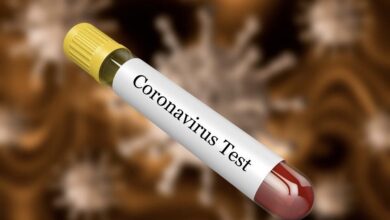
Ghana: Deputy Trade and Industry Minister Carlos Kingsley Ahenkorah Resigns
Ghana’s Deputy Trade and Industry Minister Carlos Kingsley Ahenkorah resigned from the post on Friday after admitting that he violated…
Read More »

